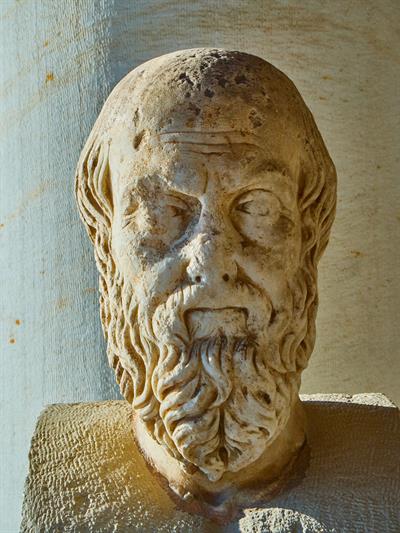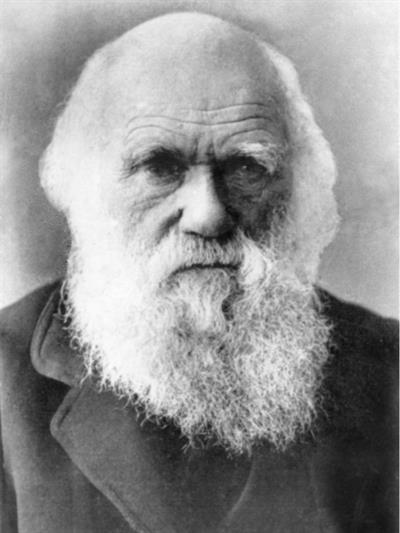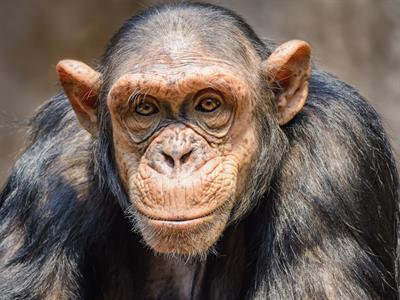
PUMPA - SMART LEARNING
எங்கள் ஆசிரியர்களுடன் 1-ஆன்-1 ஆலோசனை நேரத்தைப் பெறுங்கள். டாப்பர் ஆவதற்கு நாங்கள் பயிற்சி அளிப்போம்
Book Free DemoHumans – The Epitome of Curiosity
The Humans were the last in the line of evolution, which spanned through millions of years. They were born with an innate sense of curiosity due to their position at the tail end of the evolutionary process. This character of humans led them to question and think about the Earth, which made them special compared to other living organisms.
Their search, coupled with curiosity, lacked scientific knowledge, which was mentioned in earlier accounts. Slowly they began worshipping the natural forces and believed in the theory “Nature is God”.
Science: The real path to the past
The Greek people were considered the pioneers in the field of history. Their writing can be traced back to BC’s.

The Herodotus
Herodotus: The period of Herodotus will be around 484-425\ BCE\ (Before Common Era). He is credited with being the first Historian. In the Greek language, the word “history” means “Inquiry”.
LEONARD WOOLLEY AND THE OLDEST MUSEUM:
Leonard Woolley, an archaeologist, discovered a collection of ancient antiquities while excavating an old Babylonian Palace in 1925. However, he didn’t know that he had just found the world’s first Museum, the Ennigaldi Nanna Museum in Babylonia, which was known to be constructed during\ 530BC.

The Capitoline Museum
Capitoline Museum: This is a group of archaeological museums located on top of Capitol Hill in Rome. It is considered the oldest surviving museum from 1471 till date.
The history written by Herodotus convinced the researchers with its rational and humanistic approach, which led them towards the origin of humans.
Happenings that led to the tracing,

Stratigraphy: The branch of geology that studies the arrangement of soil and rock layers and its successions that takes place over time.
The concepts of Charles Darwin: (1809 -1882)
He was considered to be one of the scientists whose contribution to the knowledge on the evolution of the human species is still considered reliable. His concepts are still used as the basics for the research on the human revolution. The concepts propounded by Darwin are,

Charles Darwin
- Theory of Natural selection: The process by which the organism or species adapt to the existing environment to produce their offspring.
- Survival of the Fittest: This theory states that organisms with better-suited genes for a particular environment are capable of passing it to the next generation.
Books of Darwin: Darwin has contributed two books to the world, which opened various theories on the evolution of humans.
1. Origin of Species - 1859
2. The Descent of Man - 1871
1. Origin of Species - 1859
2. The Descent of Man - 1871
Humans and the Apes: The Great connection
- Most of the later theories post the Darwin period steadily accepted the fact that there is an intimate connection between Human beings and the Apes, which includes Orangutan, Chimpanzee, Gorilla and the Gibbons.
- They look and act very similar to humans as they are genetically more connected to the human race than any other animal. Chimpanzee’s DNA is 98% identical to that of Humans.

Chimpanzee
Hominins: These are the group of people from where the ancestry of humans can be traced back. They were highly confined in the regions of Africa.
The Great Rift Valley: Cradle of Prehistoric period

Great Rift Valley
- Hominids: Hominids belong to the family of great apes, under which most humans are classified.
- Hominins: They are considered to be the last common ancestor. They exhibit the trait of humans clearly than any other species (Homo Sapiens are modern humans).
- Homo Habilis: They exhibited sexual dimorphism, and their teeth were very similar to modern-day humans. They are the ones that are known to make different hand axes and tools and are found in parts of Africa.